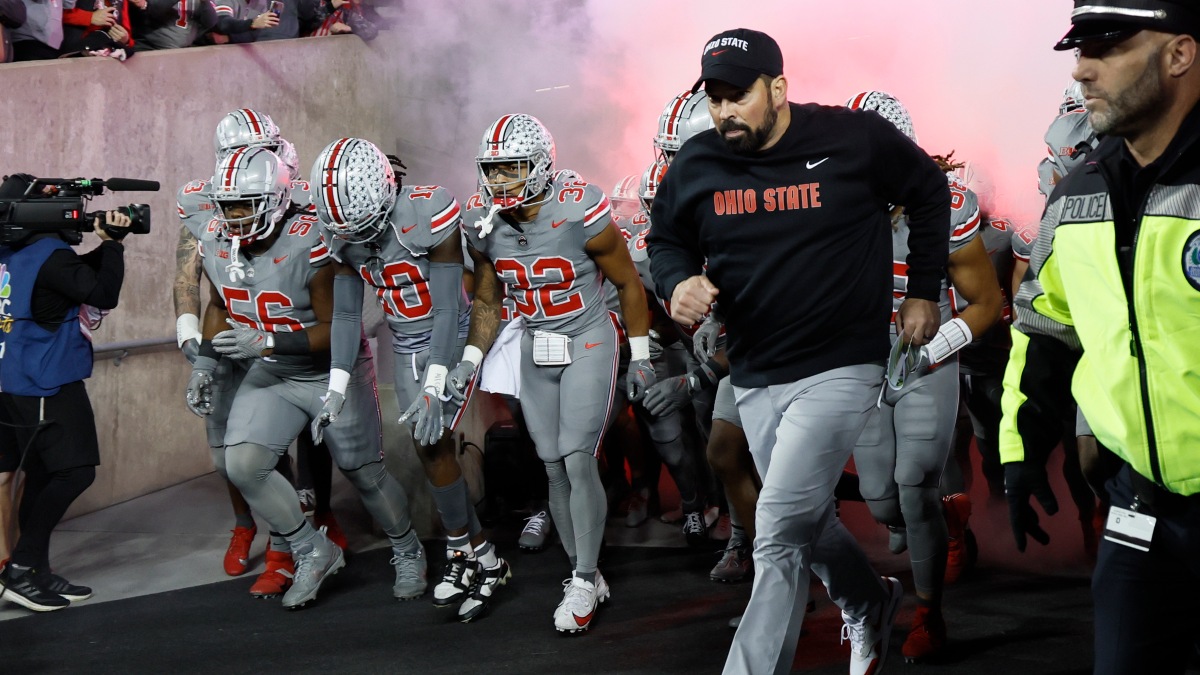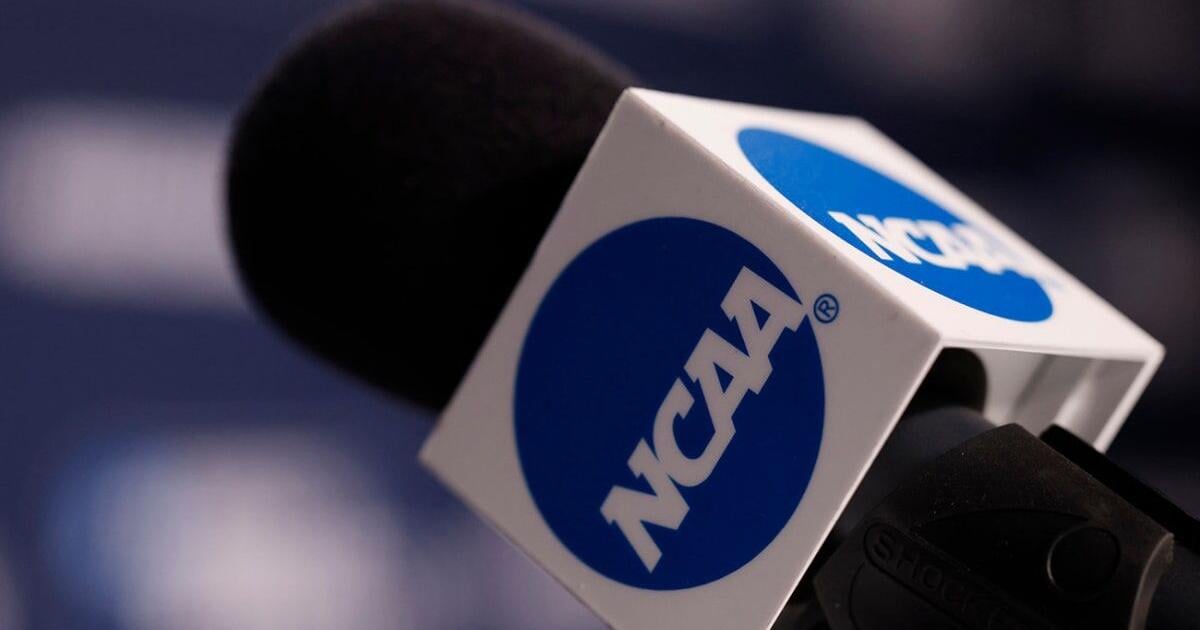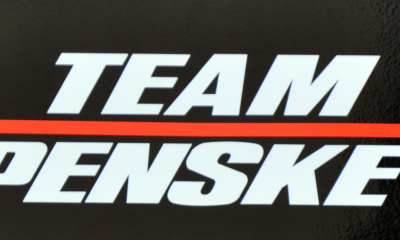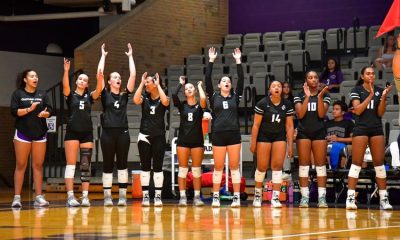NIL
NCAA House Settlement: A Look At The House Settlement & NCAA Implications
The House vs. NCAA settlement has been central to conversations around college football this offseason. If approved, it could drastically change the sport as we know it. The settlement covers many facets of college athletics. It certainly impacts the FBS, both the Power Four and the Group of Five, as well as the FCS and […]

The House vs. NCAA settlement has been central to conversations around college football this offseason. If approved, it could drastically change the sport as we know it.
The settlement covers many facets of college athletics. It certainly impacts the FBS, both the Power Four and the Group of Five, as well as the FCS and other divisions of football and other sports. But details still need to be finalized, and that’s assuming the entire deal doesn’t fall apart or is delayed beyond the upcoming school year.
Here’s more about the House v. NCAA Settlement.


House vs. NCAA Settlement Details
House v. NCAA is a legal case that revolves around the payment of college athletes. Once approved, this would allow schools to pay athletes directly for the first time.
While this does bring even more change to an already chaotic aspect to college sports, some hope that this brings about more stability in the long-term. This, some believe, will allow the NCAA or other governing bodies to enforce more regulations regarding how athletes are paid.
Many schools have already opted into the House settlement, meaning they are on board with how the case shakes out and will eventually pay college athletes directly.
But some have opted out, meaning they won’t pay athletes themselves. While that will save the schools money, it will likely impact their recruiting efforts and therefore their performance during competitions.
NIL House Settlement Back Pay
The House settlement would result in the NCAA and Division I schools paying $2.78 billion in back pay for students who competed in sports between 2016-24.
The House v. NCAA case materialized after collegiate basketball player Sedona Prince and swimmer Grant House, among other college athletes, filed a lawsuit five years ago saying that the NCAA and the power conferences unified against paying athletes and prevented them from profiting off their names, images, and likenesses (NIL).
Do Schools Opting Out Of The House Settlement Have To Provide Back Pay?
All Division I schools will have to contribute money toward back damages as a result of the House settlement, regardless if they opt into it. However, most or all of that for some schools could be taken out of the money normally disbursed from NCAA events like the NCAA Tournaments in men’s and women’s basketball.
Where House Settlement Money Will Come From
As for the $2.78 billion in back damages, the NCAA is to pay 60% of it while 40% of it will come from schools themselves. That’s to be paid out over 10 years. A good portion of the schools’ payments will come out of money that usually goes to them for NCAA competitions.
Schools can also pay students for NIL rights at a maximum of 22% of annual revenue that comes from broadcast deals and tickets.
How that back pay is dolled out hasn’t been widely publicized, though a vast majority is expected to go to football and basketball players. Specifics are to be hammered out by the plaintiffs in the case.


House v. NCAA Settlement NIL Cap
Several sources estimate a cap for how much schools will pay athletes directly will be established and that number would be $20.5 million per institution. That number would go up about 4% per year.
That wouldn’t be a minimum in this instance, just a maximum.
NCAA vs. House Settlement Update
Many expected the House settlement to have gone into effect by now, but that hasn’t happened yet.
It seemed federal judge Claudia Wilken, who oversaw other cases related to college athletics like O’Bannon v. NCAA, was going to approve the settlement. But after hearing from walk-on athletes who would’ve lost their roster spots, the case hit a roadblock.
The House settlement was going to change scholarship limits to roster limits, meaning many athletes on teams who aren’t on scholarships – also called walk-ons – would no longer be capable of participating on their teams.
Wilken reportedly wants to change these roster limit rules, accounting for current walk-ons and grandfathering them in. At the moment, schools seem unwilling to budge much on this as many had already accounted for the changes they believed were imminent.


NIL
Roethlisberger Concerned College NIL Is ‘Taking The Love Of The Game Away’
Ben Roethlisberger expresses concern about the impact of college NIL (Name, Image, Likeness) deals on the love of the game, suggesting that financial incentives may diminish genuine passion among players. While he acknowledges the benefits, such as improved financial literacy and the ability for players to support their families, he worries that the emphasis on […]

Ben Roethlisberger expresses concern about the impact of college NIL (Name, Image, Likeness) deals on the love of the game, suggesting that financial incentives may diminish genuine passion among players. While he acknowledges the benefits, such as improved financial literacy and the ability for players to support their families, he worries that the emphasis on money could lead teams to prefer less talented but more motivated players. He reflects on historical sentiments about amateurism in college sports and suggests the need for guardrails in the evolving NIL landscape to protect players and maintain the essence of competition.
By the Numbers
- Highly touted OT recruit Felix Ojo secured a three-year deal worth $5.1 million with Texas Tech.
- The NIL model is generating significant earnings for college athletes that were previously kept under the table.
State of Play
- NIL deals have blurred the lines between amateur and professional sports, changing recruitment dynamics.
- Players are entering the NFL with previous financial experience from NIL, altering team drafting strategies.
What’s Next
Moving forward, the college football landscape may see increased regulations to manage NIL deals and protect both players and institutions. As this situation evolves, it will be critical to maintain a balance between financial opportunities and preserving the competitive integrity of the sport.
Bottom Line
Roethlisberger’s insights highlight a crucial tension in modern college athletics: the need for compensation versus the preservation of passion for the sport. Stakeholders must consider how to navigate these changes without compromising the essence of college football.
NIL
Georgia offensive lineman Jahzare Jackson arrested on drug-related charges
A Georgia football player is facing charges after he was arrested on Wednesday. Sophomore offensive lineman Jahzare Jackson was charged with felony possession of marijuana of more than one ounce, according to a report from the Athens Banner-Herald. Marc Weiszer of the Banner-Herald reports that Jahzare Jackson now faces an additional three drug-related charges. In […]

A Georgia football player is facing charges after he was arrested on Wednesday. Sophomore offensive lineman Jahzare Jackson was charged with felony possession of marijuana of more than one ounce, according to a report from the Athens Banner-Herald.
Marc Weiszer of the Banner-Herald reports that Jahzare Jackson now faces an additional three drug-related charges. In addition to the charge above, he also faces possession and use of drug-related objects, possession of marijuana less than an ounce and holding or supporting a wireless device with any part of his body. All three of those charges are misdemeanors.
Jackson was booked into the Clarke County Jail on Wednesday evening just before midnight and spent roughly four and a half hours there. He was released on bonds totaling $5,030, per the Banner-Herald.
Jahzare Jackson is not the first Georgia player to run afoul of the law this offseason. In March, receiver Nitro Tuggle and offensive lineman Marques Easley were suspended following traffic-related infractions.
Meanwhile, a current Georgia commitment is facing charges related to an alleged domestic battery. That news broke on Saturday.
Seven Cloud arrested on domestic battery charge
Jahzare Jackson was the second player or commitment in as many days to make headlines for a recent legal issue. Georgia JUCO commit Seven Cloud is facing charges regarding domestic battery that stem from an April incident in Butler County. The defensive lineman appeared in front of a judge on Monday, July 14, where he was formally charged.
According to the Butler County Times Gazette, Judge Chad Crum found probable cause to charge Cloud and ruled him to have no contact with the victim moving forward. It is a Class B misdemeanor and he will be back in court on Sept. 22.
The report states that the incident occurred on April 20. The Butler County Sheriff’s office was called to the scene of an altercation between Cloud and his significant other. He was arrested and subsequently bonded out. Police allege that Cloud “did knowingly cause physical contact with another person, in a rude, angry or insulting manner.”
This is not the first incident where the police have been involved with Cloud and his significant other. On March 27, Cloud was charged with disorderly conduct after allegedly destroying her cell phone. That is also classified as a misdemeanor and both charges came from the BCC Department of Public Safety.
While Cloud has not yet joined the Georgia program, Jahzare Jackson played in every game last season. He was expected to compete for a backup job on the offensive line this fall.
On3’s Barkley Truax also contributed to this report.
NIL
Letters
The impressive financial gymnastics Taylor Jacobs, who oversees name, image and likeness, and her team executed to enable LSU to be financially competitive in paying their athletes to play gives a literal definition to winning at all costs. There are liabilities associated with pay to play that should be considered. Amateurism in college and high […]



The impressive financial gymnastics Taylor Jacobs, who oversees name, image and likeness, and her team executed to enable LSU to be financially competitive in paying their athletes to play gives a literal definition to winning at all costs.
There are liabilities associated with pay to play that should be considered. Amateurism in college and high school sports no longer exists. Excelling at sports used to be about fulling a dream to be the best through hard work and sacrifice and to experience the sheer joy of accomplishment. Now, competing is complicated by a paycheck.
Have college athletes become mercenaries playing for the highest bidder? The money has become preeminent in discussions with players and has irrevocably changed players’ relationships with coaches and their teams. Forget about mentorship and team loyalty, just show me the money.
LSU athletes are professionals by definition. They are contract workers but could become employees if they are allowed to collectively bargain. How will that work?
Wining is a good thing except when the costs are too high.
JIM ROBERTS
St. George
NIL
SEC football teams with the most cupcake routes to the College Football Playoff
Did SEC football programs learn how to schedule from last season’s CFB Playoff Selection Committee? Though few games are added less than a year out, appearances are that some SEC teams believe scheduling as many cupcakes as possible is the way to go. Recently, On3’s Pete Nakos picked 11 teams with the weakest out-of-conference (OOC) […]

Did SEC football programs learn how to schedule from last season’s CFB Playoff Selection Committee? Though few games are added less than a year out, appearances are that some SEC teams believe scheduling as many cupcakes as possible is the way to go.
Recently, On3’s Pete Nakos picked 11 teams with the weakest out-of-conference (OOC) schedules in the 2025 season. Six of the 11 are SEC football teams. One of the six, Vanderbilt, gets a pass. Thanks to the Commodores’ SEC schedule, ESPN Analytics ranks Vanderbilt as having the nation’s second-toughest 12-game schedule. Another SEC team, Georgia, is rated as the 8th-toughest FBS schedule, with Alabama and Texas playing in Athens. Nakos included Auburn in the weakest OOC schedules, but with the Tigers not being a legit playoff contender, the weakness is not material.
Three of the other SEC teams are playoff contenders. For each of the three a big reason why is their out-of-conference schedule.
The three SEC football teams hoping to cakewalk to a Playoff at-large bid are Tennessee, Ole Miss, and Missouri. The three fanbases will loudly contend their teams are SEC championship contenders. But ESPN gives the Vols a 4.2% probability of winning the SEC. Ole Miss is at 2.8% and Missouri is at 0.6%. The realistic playoff goal for each team is a 10-2 or 9-3 season. None of them can afford to lose an out-of-conference game.
Using an Athlon ranking of the 136 FBS teams, Missouri has a greater risk than the Vols or the Rebels to lose an out-of-conference game. In Week 2, Missouri hosts a home game against No. 35-ranked Kansas. The Tigers open with FCS, Central Arkansas, and have two more catwalk games against No. 92 Louisiana and No. 135 UMass.
Tennessee opens with No. 57 Syracuse, in Atlanta, in what is almost a home game for the Vols. In addition, Tennessee plays FCS, East Tennessee State, No. 125 UAB, and No. 132 New Mexico State.
Four games into the Ole Miss season, Tulane (No. 48) plays the Rebels in Oxford. Ole Miss also plays FCS, The Citadel, No. 97 Washington State, and No. 112 Georgia State.
Ole Miss and Missouri have no road, out-of-conference games. Tennessee can’t claim one either.
SEC Football requires at least one non-SEC Power Opponent
For the record, Alabama Football also has two cupcakes: FCS Eastern Illinois and No. 116 ULM. But, the Crimson Tide plays two non-SEC Power teams in FSU (No. 42) and Wisconsin (No. 45), with the FSU game in Tallahassee.
NIL
Georgia predicted to lose 5-star RB for all the wrong reasons
July 20 marks the commitment date for five-star running back Derrek Cooper. Throughout the past few months Georgia has been one of his top teams if not the team leading in his recruitment. However, the last few days have seen multiple recruiting experts predict Cooper to Texas. There theoretically is still time for Georgia to […]

July 20 marks the commitment date for five-star running back Derrek Cooper. Throughout the past few months Georgia has been one of his top teams if not the team leading in his recruitment. However, the last few days have seen multiple recruiting experts predict Cooper to Texas.
There theoretically is still time for Georgia to come back and win this recruitment, but that seems nearly impossible at this point. So what went wong for Georgia in this recruitment?
It’s hard to know exactly how Georgia lost this recruitment, but a few experts have hinted at the sole reason being financial.
Cooper trending to Texas because of NIL offer
Two recruiting insiders on Sunday hinted on social media that the reason Cooper is likely to pick Texas is because of the financial package offered to him by the Longhorns.
The first report indicating Cooper’s decision is being heavily influenced by money came from Rivals insider Geoff Ketchum. It’s important to not that Ketchum is a Texas insider with Rivals, so he likely is the most knowledgeable person at Rivals about Cooper’s recruitment.
The Derrek Cooper recruitment is a reminder that money in college football matters and that it’s ok.
It sometimes matters more than official visits… and that’s ok.
It sometimes matters more than any other factor… and that’s ok.
— Geoff Ketchum (@gkketch) July 20, 2025
Georgia insider Radi Nabulsi also weighed in on this recruitment by sarcastically crediting the amazing relationship Texas formed with Cooper.
Amazing relationships being developed by Texas https://t.co/o9kCrDhnXW
— Radi Nabulsi (@RadiNabulsi) July 20, 2025
Regardless of the reason, it’s unfortunate that Cooper appears to be heading to Texas instead of Athens. Blaming the loss on a massive NIL offer is an easy excuse for fans to make when losing a recruitment, but that’s just the name of the game nowadays.
Whether Georgia likes it or not, recruiting is heavily influenced by money. So if Georgia wants to win more of these recruitments, they might have to up the NIL they’re willing to offer.
At the end of the day though, Kirby Smart has shared he will not overspend for any recruit out of high school. He’d rather reward his upperclassmen financially who have earned it over multiple years at Georgia.
So far this strategy has worked at Georgia during the NIL era, and as long as UGA keeps winning on the field then losing these recruitments isn’t so bad.
NIL
House Settlement Provides Level NIL Playing Field in SEC, Says Arkansas Coach
Arkansas head coach Sam Pittman says a $2.8 billion antitrust settlement that went into effect this month has leveled the college football playing field in a good way. Pittman said Arkansas now has a chance to compete on more even terms with other SEC powers like Georgia, Alabama and Texas. Pittman said at SEC media […]



Arkansas head coach Sam Pittman says a $2.8 billion antitrust settlement that went into effect this month has leveled the college football playing field in a good way.
Pittman said Arkansas now has a chance to compete on more even terms with other SEC powers like Georgia, Alabama and Texas. Pittman said at SEC media days that his program had previously dealt with a financial disadvantage against schools with more established name, image and likeness collectives since NIL payments began in 2022.
According to the terms of the House settlement, each school can now share up to about $20.5 million with their athletes.
“Financially, with revenue sharing, I think we are finally back on [an] even keel with everybody, which we weren’t,” said Pittman, whose team finished 7-6 in 2024. “If I was going to make an excuse, it would be financially is why we haven’t done quite as well. … But I think now with it being even, look out, the Razorbacks are coming.”
Pittman and most other coaches brought seniors and graduate players to represent their teams at SEC media days, which concluded Thursday. Pittman brought two 2021 recruits and a transfer, but Arkansas could have difficulty finding seniors next year from his original 2022 signing class because many members of that class have transferred.
Pittman, whose Razorbacks have earned bowl bids in four of his five seasons, said players have different reasons for transferring but that many were lured away from Arkansas by more attractive NIL packages at other schools. When asked about the 2022 class, Pittman said, “Here’s what it’s not because of: the way they’re treated, because of the way they’re developed, because of the way they’re taught.”
“That’s not the reason. It could be playing time. It could be finances. Probably the majority of it is finances.”
The House settlement era began on July 1.
The enforcement of the House settlement is still being worked out as the new College Sports Commission informed athletic directors in letters last week that it was rejecting payments to players from collectives created only to pay players instead of as payment for NIL.
Some seniors at SEC media days said NIL payments and the transfer portal have contributed to their decisions to complete their eligibility instead of leaving school early to pursue opportunities in the NFL.
“I would most definitely say so,” Missouri offensive lineman Connor Tollison said. “Obviously, you know, you have a chance to make some money these days. … With the transfer portal, if you don’t have [a necessarily good] opportunity at this place you’re at, you have the chance to go somewhere else and get a fresh start.
“It wasn’t necessarily something I experienced to my college career, but I’ve seen it. You know, it works for plenty of players. So yeah, I think it’s good for the players.”
When asked if NIL makes it easier for players to complete their eligibility, Kentucky coach Mark Stoops, coming off a 4-8 season, said, “Listen, we all love our players, whether they’re one year in our program, six months, or four years.”
Linebacker Alex Afari, defensive back Jordan Lovett and tight end Josh Kattus were the seniors who accompanied Stoops to Atlanta. “Of course I love making money from name, image and likeness,” Lovett said. “But I love football first. You know, football was my first love. So I play for the game, not for money.”
Lovett added his primary motivation for returning was to earn his first win over Georgia.
“It’s the big part of college football now because some dudes just make decisions off, you know, the financial stuff,” Lovett said. “I love football. … I still haven’t, you know, beat Georgia yet. You know, Georgia’s one of my goals.”
Reporting by The Associated Press.
Want great stories delivered right to your inbox? Create or log in to your FOX Sports account, and follow leagues, teams and players to receive a personalized newsletter daily!
-

 College Sports2 weeks ago
College Sports2 weeks agoWhy a rising mid-major power with an NCAA Tournament team opted out of revenue-sharing — and advertised it
-

 Motorsports2 weeks ago
Motorsports2 weeks agoTeam Penske names new leadership
-

 Youtube3 weeks ago
Youtube3 weeks ago🚨 BREAKING: NBA MVP Shai Gilgeous-Alexander signs the RICHEST annual salary in league history
-

 Sports2 weeks ago
Sports2 weeks agoNew 'Bosch' spin
-

 Sports5 days ago
Sports5 days agoVolleyball Releases 2025 Schedule – Niagara University Athletics
-

 Fashion7 days ago
Fashion7 days agoEA Sports College Football 26 review – They got us in the first half, not gonna lie
-

 Sports2 weeks ago
Sports2 weeks agoE.l.f Cosmetics Builds Sports Marketing Game Plan Toward Bigger Goals
-

 College Sports2 weeks ago
College Sports2 weeks agoMSU Hockey News – The Only Colors
-

 College Sports1 week ago
College Sports1 week agoBuford DB Tyriq Green Commits to Georgia
-

 Health7 days ago
Health7 days agoCAREGD Trademark Hits the Streets for Mental Health Month





























